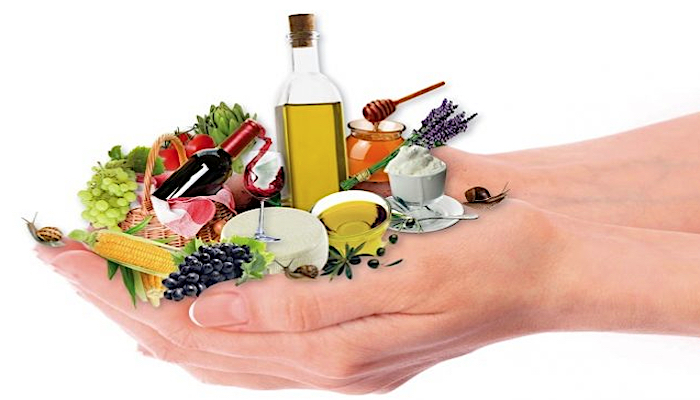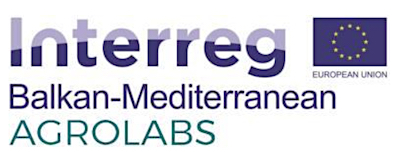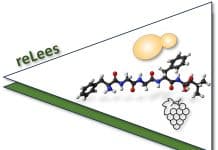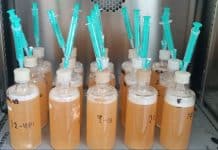 For the Balkan Med region, the agro-food sector has an important social and economic role–especially in rural communities – and is emerging as a central element for the region’s development.
For the Balkan Med region, the agro-food sector has an important social and economic role–especially in rural communities – and is emerging as a central element for the region’s development.
Despite the diversity of production systems and the different degrees of obstacles, Balkan Med territories are facing common challenges that limit the development of the agro food sector and weaken especially the small producers.
Most constraints are common in rural Balkan Med areas, such as lack of innovation and productivity, quality and food safety, difficulties in promoting typical products, access to funding and the structure of the value chain at a regional level.
 On top, agricultural policies implemented by Balkan Med countries in recent decades have led to their increasing dependence on imports and to their total exposure to volatile international markets.
On top, agricultural policies implemented by Balkan Med countries in recent decades have led to their increasing dependence on imports and to their total exposure to volatile international markets.
AgroLabs project aims to foster the production and distribution of innovative agro-food products of the Balkan Med area by organizing local value chains, supporting producers in their development projects and creating new markets for their products.
To achieve these aims towards the sustainable growth of the Agro Food sector, all relevant actors should be engaged.
The promotion of sustainable agro-food development requires that “enabling environments”, in particular those aimed at ensuring innovation, continuing human resource development and capacity building, are promoted and maintained.
This will be achieved through the development of Agro Food innovation clusters, a place where research, industry and authorities can meet to co-create the Balkan Med area’s competences in innovation of agro-food sector.
This will contribute to the organization of agro-food value chains, support SMEs and producers and promote their products in local and international markets.
The main output of AgroLabs project include:
1. The diagnosis of the agro-food chain in Greece, Cyprus, Albania and Bulgaria
2. 4 agro-food innovation clusters (AgroLabs)
3. Joint conceptualization of cluster projects,
4. Participatory development of pilot cluster project to address common challenges, to be more competitive and to generate economies of scale etc.
5. Innovative products through the implementation of pilot activities, Regional capacity building training sessions for SMEs and local support structures in the agro- food value chain and raising local authority awareness.
Project Τitle:
AgroLabs – AgroFood Innovation Clusters ‘’ Interreg Balkan-Mediterranean 2014-2020’’
Project Duration:
1 August 2017 – 31 January 2020
Project URL:
http://www.interreg-balkanmed.eu/approved-project/31/
Project Framework & Funding:
Interreg V-B ‘’Balkan- Mediterranean 2014-2020
Funding: 956,303.00 €
Principal Investigator (UNIWA):
Prof. Ioannis Tsaknis, Project Manager
Email: jtaknis@uniwa.gr
Tel: +30 2105385500
Research Team:
Dimitris Timbis, Contact Person – Academic Staff
Anastasia Kanellou, Academic Staff
Efstathia Tsakali, Academic Staff
Christos Anastasakos, Administrative Staff
Consortium – Partners:
1. University of West Attica, Greece (Lead Partner – Coordinator)
2. Region of Central Macedonia, Greece
3. Cyprus University of Technology, Cyprus
4. Development Agency of Lemesos, Cyprus
5. Agricultural University of Tirana, Albania
6. Municipality of Fier, Albania
7. Sofia University ‘’St. Kliment Ohridski‘’, Bulgaria
8. Municipality of Razlog, Bulgaria.
Research Publications / Results / Patents :
Efstathia Tsakali, Melina Aroni, Mavra Marouda, Anastasia Kanellou, John Tsaknis, Dimitra Houhoula, Spiridon Konteles, Dimitrios Timpis. (2020). A preliminary study on the effect of temperature and delayed packaging on the shelf-life of late crop Greek peaches and nectarines. 11th biennial FOODSIM2020, April 5-9, 2020, Ghent, Belgium (accepted for publicatio)*
*Conference was postponed to September 6-10, 2020 due to Covid-19 restrictions
The outputs will benefit producers, SMEs and all actors in the agro-food value chain, local/regional authorities and the participating regions. The innovative “bottom-up” approach of AgroLabs will allow to meet the needs and the aspirations of the involved stakeholders and to ensure the appropriation of the AgroLabs clusters by building a joint strategy through cross-border exchange. This will lead to the creation of the Balkan Med network of agro-food clusters. In addition AgroLabs partners acting as facilitators will provide stakeholder support throughout the project lifetime.












